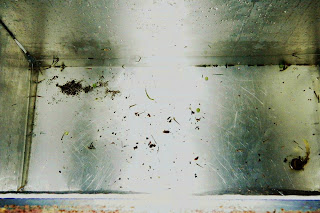
Here at 47 degrees north latitude, the equinox feels more like the start of a new year than the calendar new year does. Seattle isn't all that cold, and the snow generally stays politely in the mountains all winter. But January first falls within the dark period of the year, and the long nights continue untroubled by humans changing their calendars. The sun at noontime continues anemic and watery on the few days it isn't shrouded in fog or clouds. I start longing for snow in October, I start longing for sun in January, and to me all of winter belongs in the previous year. This photo is from the last snowshoe of the year, mid-March. The sun was a burning pearl, turning the fresh snow slushy by early afternoon, and the clouds waved and circled all day. Beautiful day to say goodbye to winter and hello to spring.
The equinox also seems like an auspicious time to start this blog about being outdoors (mostly) in the Northwest. It's the official changing of the gear, when the snowshoes are put in their box, and the bike gets a tune-up. So, happy new year. See you outside!

































